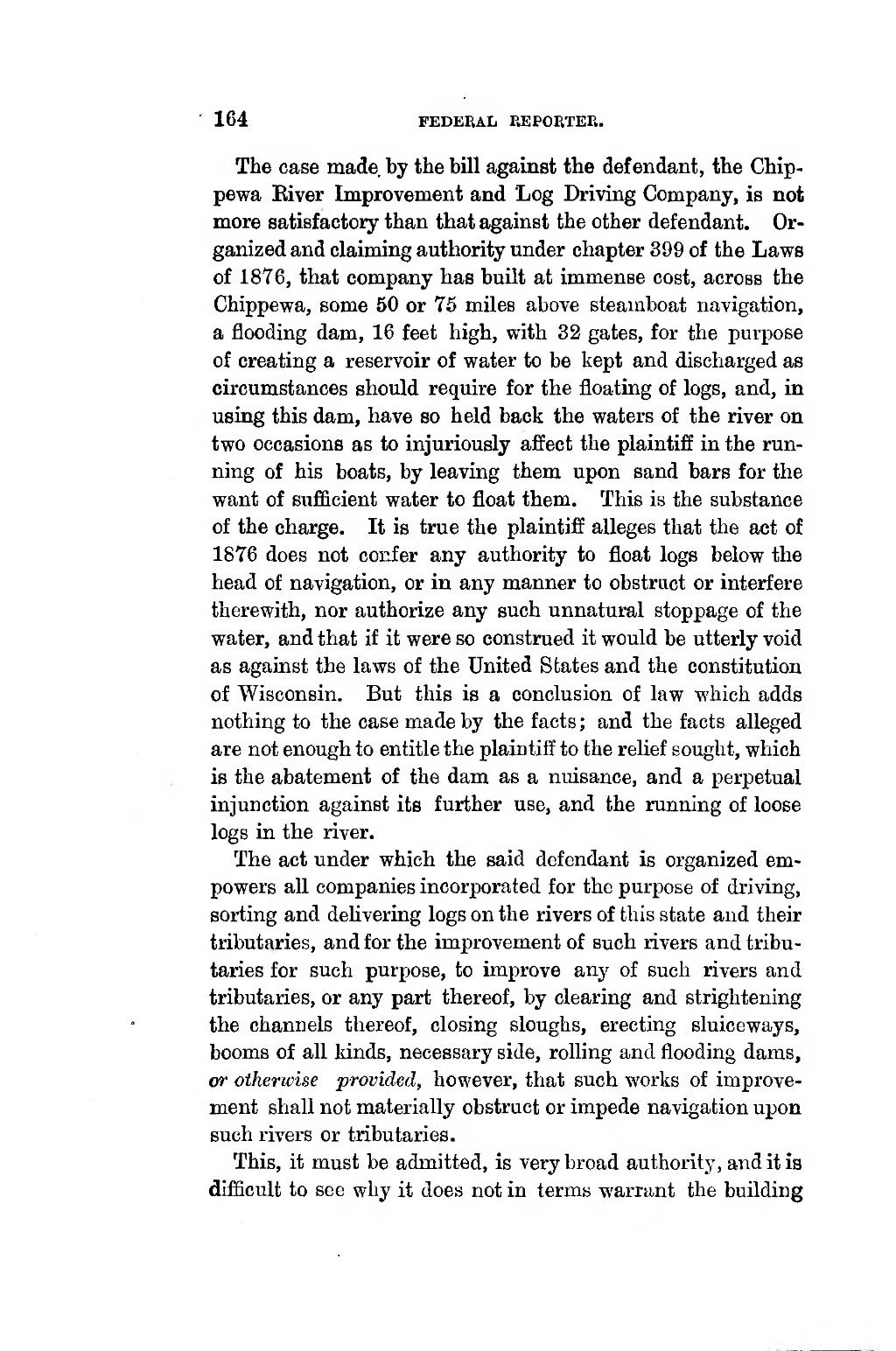164 FEDERAL REPORTER. �The case made. by the bill against the defendant, the Chip- pewa Eiver Improvement and Log Driving Company, is not more satisfactory than that against the other defendant. Or- ganized and claiming authority under chapter 399 of the Laws of 1876, that company has built at immense cost, across the Chippewa, some 50 or 75 miles above steamboat navigation, a flooding dam, 16 feet high, with 32 gates, for the purpose of creating a reservoir of water to be kept and discharged as circumstances should require for the floating of logs, and, in using this dam, have so held back the waters of the river on two occasions as to injuriously affect the plaintiff in the run- ning of his boats, by leaving them upon sand bars for the ■want of snfficient water to float them. This is the substance of the charge. It is true the plaintiff alleges that the act of 1876 does not confer any authority to float logs below the head of navigation, or in any manner to obstract or interfere therewith, nor authorize any sueh unnatural stoppage of the water, and that if it were so construed it would be utterly void as against the laws of the United States and the constitution of Wisconsin. But this is a conclusion of law which adds nothing to the case madeby the facts; and the facts alleged are not enough to entitle the plaintiff to the relief sought, which is the abatement of the dam as a nuisance, and a perpetuai injunction against its further use, and the running of loose logs in the river. �The act under which the said defendant is organized em- powers all companies incorporated for the purpose of driving, sorting and delivering logs on the rivers of this state and their tributaries, and for the improvement of such rivers and tribu- taries for such purpose, to improve any of such rivers and tributaries, or any part thereof, by clearing and strighteuing the channels thereof, closing sloughs, erecting sluieeways, booms of all kinds, necessary side, roUing and flooding dams, or otherwise provided, however, that such works of improve- ment shall not materially obstruct or impede navigation upon such rivers or tributaries. �This, it must be admitted, is verybroad authority, and itia difficult to see why it does not in terms warrant the building ��� �
